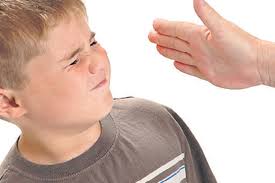
Slapping children may cause memory loss, say paediatricians
Experts in child health have cautioned that using physical punishment to discipline kids can have severe health effects, such as memory loss, paralysis, and deafness.
Concerning the hidden risks of physical punishment or assault on children, particularly those under five, the paediatricians advised parents and carers to look into alternate forms of discipline that do not injure or hurt the kid.
The warning is in response to a recently circulated video showing Stella Nwadigo, a teacher at Christ-Mitots International School in the Ikorodu neighbourhood of Lagos State, physically abusing a three-year-old student.
In a short, widely shared video, Nwadigo was shown abusing young student Abayomi Michael during a writing class.
In the footage, Nwadigo was heard instructing Micheal on how to write the number six while repeatedly slapping him.
The footage ignited widespread outrage, with Nigerians condemning the act and demanding the teacher’s prosecution.
The public condemnation and outrage led to the teacher’s arrest and prosecution.
Reacting to the teacher’s action, the child health experts described the method as a dangerous way of correcting a child, warning that such action could have long-term health consequences on the assaulted child.
The child specialists said slapping a child could have severe consequences on their physical, emotional, and psychological well-being.
The paediatricians said the physical implications may include injury, deafness, head and neck trauma, and dental issues, adding that such a child may further suffer emotional and psychological effects like PTSD, anxiety, fear, low self-esteem, aggression, and depression.
A paediatric surgeon, Prof Aminu Mohammad, stated that slapping children could lead to physical injuries, including bruises, cuts, and even broken bones.
Mohammad, who is the President of the Medical and Dental Consultants Association of Nigeria, highlighted that repeated slap especially near the ears, could create significant pressure on the eardrum, leading to permanent hearing loss.
According to the don, the force of the slap may also result in head and neck trauma, including contusions and possible brain injuries that, in severe circumstances, may cause paralysis or coma.
"Slapping a child can result in physical injuries like cuts, bruises, and even broken bones," he continued. Because slapping applies a lot of pressure, particularly to the ear, it can also result in hearing. The eardrum may sustain damage from the pressure and burst. Sometimes people will slap more than once, which can cause permanent damage to the eardrum and result in hearing loss if care is not taken.
Additionally, slapping can injure the head and neck, resulting in contusions. Contusions happen when there is an abrupt change in the brain causes it to strike the inner part of the skull, leading to potential brain damage. This could result in unconsciousness. The sudden shift can cause what is known as a ‘whiplash injury,’ an injury to the neck caused by sudden force. This could injure the spinal cord, potentially leading to paralysis in the limbs if not treated.
“Slapping can also lead to dental problems and injuries. It can result in the loss of teeth or cause hazardous denture issues.”
Speaking further, the paediatric surgeon said slapping children could lead to anxiety, fear, low self-esteem, aggression, violence, depression, and post-traumatic stress disorder.
“Emotionally, slapping can lead to anxiety and fear in the child, and the child may no longer feel comfortable or safe at home, especially if the aggressor is a parent. This can lead to further problems.
“Slapping can also result in low self-esteem, as the child who is slapped, particularly in front of others, may feel worthless, unloved, and unvalued. It can also foster aggression and violence, as the child may believe that violence is an acceptable way to express anger. This behaviour could cause the child to develop into a bully.
Post-traumatic stress disorder and depression can result from slapping. There is frequently a spike in uneasiness and worry when the child encounters the person who slapped them. This may cause hypertension in the child at a young age.
Additionally, there are long-term repercussions. Since people often react to things that upset them, slapped children may have trouble controlling their emotions, which could result in mood swings. These kids might also have trouble establishing close bonds with others and trusting them.
According to him, "children who experience depression may turn to substances as a form of escape, which increases the risk of substance abuse."
The paediatrician emphasised that there are other, more efficient approaches to child discipline, like positive reinforcement, which emphasises compliments, incentives, love, and constructive criticism.
He also suggested time-outs as a kind of psychological adjustment, in which kids are given a short window of time to consider what they have done.
Prof. Edamisan Temiye, a paediatric haematologist and oncologist who works as a consultant at the Lagos University Teaching Hospital in Idi-Araba, also stated that treating children severely raises the prevalence of aggressiveness in society.
"A child who is treated in a harsh and unfriendly manner is likely to repeat that in his or her children," the doctor added.
"Children from loving and kind families tend to be more intelligent and expressive. Additionally, they contribute more positively to society than those children who come from places where children are shouted at and beaten.
"It is harmful because it can injure the child when you smack them and their eyes turn.
"A child who is treated in a harsh and unfriendly manner is likely to repeat that in his or her children," the doctor added.
"Children from loving and kind families tend to be more intelligent and expressive. Additionally, they make more constructive contributions to society than kids from neighbourhoods where kids are yelled at and physically assaulted.
"It is harmful because it can injure the child when you smack them and their eyes turn.





